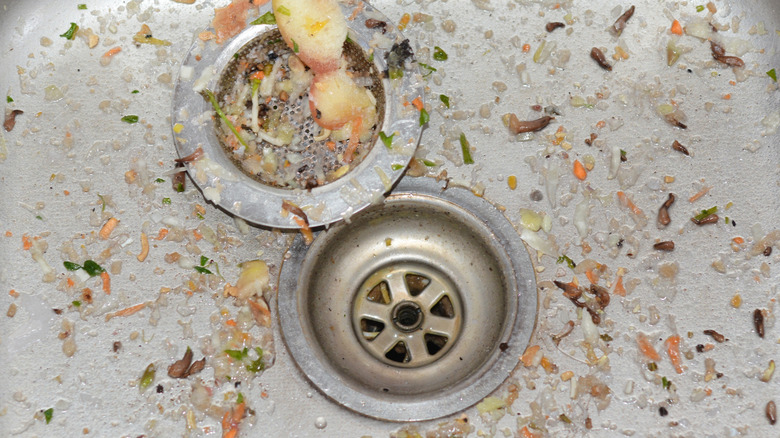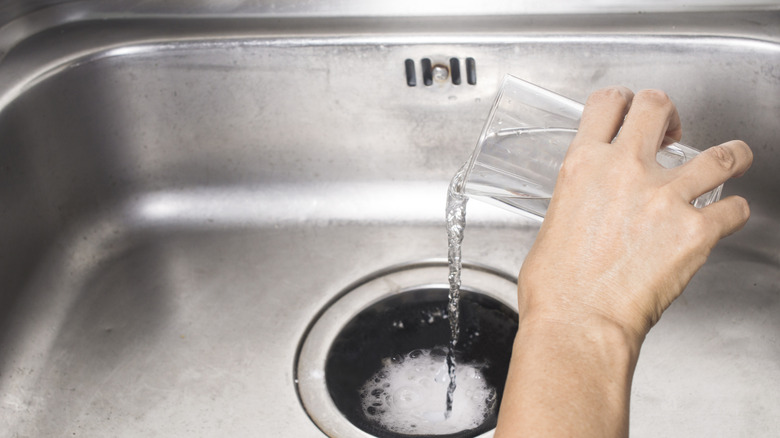Pour Vinegar Down The Drain For A Clean Kitchen Sink That Smells Good
You probably clean your countertops and cutting boards like a pro, but when was the last time you thought about your kitchen sink and drain? A study conducted by the U.S. Department of Agriculture reveals some pretty alarming findings. Researchers asked people to prepare breakfast using eggs, raw sausage, and cantaloupe. When they swabbed the area afterward, about 34% of sinks showed signs of contamination. Besides, 26% of the cut-up cantaloupe samples also carried traces of bacteria, likely from resting in the sink. Think about it for a second. Your fresh fruit or the lettuce you wash by filling the sink could be picking up the same bacteria that were hanging out with raw meat. So, it only makes sense to give your kitchen sink a proper cleanse every now and then. That's where a versatile cleaning tool like distilled white vinegar comes in. Pouring it down the drain helps break down the unwanted buildup.
Doing so is important because the concern extends beyond the mere presence of germs on food. A dirty drain can also become a breeding ground for mold and odor-causing bacteria. When this happens, your kitchen will smell off, no matter how much you scrub. Leaving the issue unchecked eventually builds up gunk and slows drainage. In the worst cases, it can even cause backflow, bringing potential health risks along with it.
Using vinegar for a clean and nice-smelling kitchen sink
To clean a sink drain, fill half a cup with distilled white vinegar and the rest with water. Mix and slowly pour it down the drain. Avoid running any water afterward. You want that vinegar mixture to sit in the drain, not flush right through. Ideally, let it rest overnight so it has time to do its job. The acetic acid in vinegar will dissolve the food residues and grease clinging to the sides of your pipes.
Once the grime loosens, unpleasant odors will be gone. That's because the acetic acid in vinegar also neutralizes alkaline smells, those that come from decomposing food. Make sure you clean your kitchen sink drain once a month to keep it in great shape. Also, avoid washing your hands in the kitchen sink. You'd be surprised to know that our hands carry as many as 3,000 bacteria from over 100 species. When you rinse them in the sink, all that bacteria ends up right where you prepare food. So, stick to the bathroom sink for handwashing. Lastly, if you're dealing with a serious clog, vinegar won't do the trick. That's your cue to call a professional plumber and let them handle the heavy stuff.

